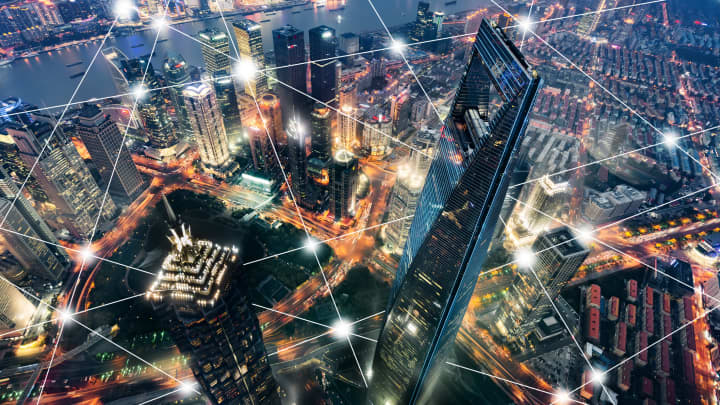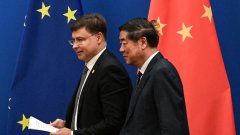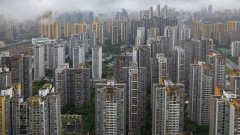
On Wednesday, Biden signed off on the executive order that limits U.S. investment and expertise in semiconductors and microelectronics, quantum computing, and certain artificial intelligence capabilities in China, Hong Kong and Macao.
The latest order bears some similarities to a the Senate recently passed and omitted wording for an outright ban on investment.
It comes amid an escalating race for global technological supremacy that has both national security and economic implications.
"I think it is going to have a pretty broad chilling effect on technology transfers and investments by U.S. firms in China," Prasad said.
Biden warned in the executive order that certain American investments may contribute to "the development of sensitive technologies and products in countries that develop them to counter United States and allied capabilities."
"I find that countries of concern are engaged in comprehensive, long-term strategies that direct, facilitate, or otherwise support advancements in sensitive technologies and products that are critical to such countries' military, intelligence, surveillance, or cyber-enabled capabilities," said the president, who further characterized the situation as "a national emergency."
"The investment restrictions largely mirror export controls already in place, including those that ban exports to China of machinery and software used to produce advanced semiconductors," Gabriel Wildau, a Teneo managing director focusing on China political risk, wrote in a note to clients.
"Unprecedentedly tough restrictions that the US Commerce Department issued in October (soon to be expanded) already rendered new U.S. investment in advanced Chinese semiconductor production effectively impossible, since any such factory would need imported equipment covered by those restrictions," he added.
The executive order adds to last October aimed at of key chips and semiconductor tools to China, while also lobbying major chipmaking nations and allies such as Japan and to do the same.
In response, key to the manufacturing of semiconductors in July, requiring exporters to to ship some gallium and germanium compounds.
During a visit to Beijing in July, U.S. Treasury Secretary Janet Yellen that any curbs on U.S. outbound investments would be "transparent" and "very narrowly targeted."
Biden's executive order though is still some way from becoming concrete legislation.
The U.S. Treasury has been tasked to formulate exact regulations to implement the order, including defining the boundary between prohibited transactions and those that merely require notification.
Late Wednesday, the to "seek early stakeholder participation in the rulemaking process" — including input on the subsets of national security technologies and related products to the areas of technology identified in Biden's executive order.
The Treasury Department it anticipates excepting certain transactions, including potentially those in publicly traded instruments and intracompany transfers from U.S. parents to subsidiaries.
Biden's executive order comes at a time when a raft of economic data has underscored slowing growth momentum in the world's second-largest economy.
Official data Wednesday showed that consumer prices fell for the first time in two years in July from a year ago, as producer prices declined on a year-on-year basis for a 10th straight month.
"I don't think the U.S. Treasury or the [Biden] administration planned it this way, but this is spectacularly bad timing for China," Prasad said. "Confidence is falling, growth is stalling, China seems to be sliding into a downward spiral with deflation, low growth and lack of confidence all feeding on each other."
"This does very little to inspire confidence that China is going to be able to pull back on short-term growth. And this could also affect its long-term growth potential because China is very eager to move into high tech, higher value-added industries," Prasad said.
As part of its plan to bolster growth, China's top leaders have recently on private and foreign investors, while anticipating the country's post- economic recovery to proceed in a " " manner.
"At the moment, its domestic innovation program is not going that well. China still needs foreign technology — it needs foreign capital a lot less than foreign technology. Without foreign technology, I think it's very difficult for China to make that leap," he added.
— CNBC's contributed to this story and contributed to this story from Washington.




